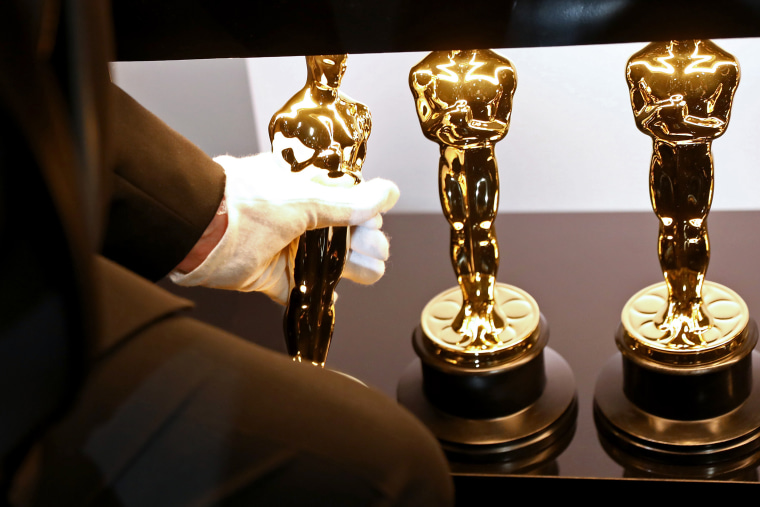The organization that puts on the Oscars announced Friday that, starting next year, films will be required to meet "representation and inclusion standards" to qualify for awards.
The Academy of Motion Picture Arts and Sciences did not provide specifics on the new eligibility standards. The group said in a news release that it will form a task force of industry leaders to "develop and implement" the standards by the end of July.
“While the Academy has made strides, we know there is much more work to be done in order to ensure equitable opportunities across the board,” Academy CEO Dawn Hudson said in a statement. “The need to address this issue is urgent. To that end, we will amend—and continue to examine—our rules and procedures to ensure that all voices are heard and celebrated.”
The film academy also announced that, beginning with the 94th Academy Awards in 2021, the best picture category will be set at 10 nominees, "rather than a fluctuating number of nominations from year to year" — a practice that had been in effect since the 2011 telecast.
The efforts are part of an equity and inclusion initiative called "Academy Aperture 2025," a push to "advance inclusion in the entertainment industry and increase representation within its membership and the greater film community."
The initiative will include a series of panels called "Academy Dialogue: It Starts With Us" for film academy members and the general public focused on race, ethnicity, history and filmmaking craft. Oscar-winning actress and television personality Whoopi Goldberg is slated to lead a conversation on the "lasting impact of racist tropes and harmful stereotypes in Hollywood films," the academy said.
The changes come as a wide array of media companies and entertainment brands have pledged to create more inclusive internal cultures and produce more representative content amid nationwide protests over systemic racism and structural inequality.
The academy has faced intense criticism in recent years over the lack of diversity in its nominees and internal ranks.
The issue came to a head in 2016 in the form of the #OscarsSoWhite social media hashtag following two straight years in which no actors of color were nominated. The outcry led to a major push by Cheryl Boone Isaacs, then the academy's president, to diversify the pool of voters.
In the years since, there has been some progress: The proportion of female members climbed from 25 percent in 2015 to 32 percent last year, while the proportion of people of color inched up from a paltry 8 percent to 16 percent over the same period.


